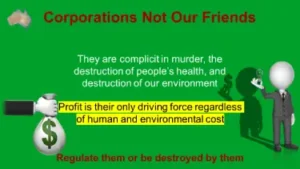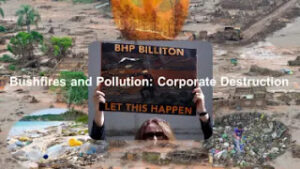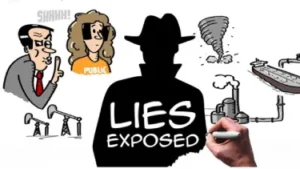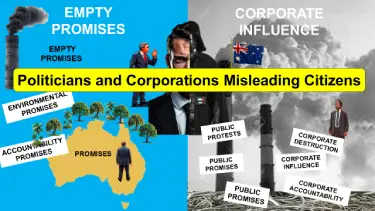Description: Politicians and Corporations’ Deception
Uncover how Australian politicians and corporations deceive citizens. Learn the impacts and solutions for a more ethical system.
Introduction

Australia faces a troubling reality: politicians and corporations are deceiving citizens. This article uncovers the deceit, its impact, and offers solutions. The aim is to inform and empower Australians to demand accountability and transparency. Read on to discover how political deceit and corporate influence are affecting Australian society and what can be done to foster a more ethical system.
Section 1: Historical Context
Post-War Australia
After World War II, Australia experienced economic growth and social development. The government actively supported public services, education, and infrastructure projects, creating a sense of prosperity and stability.
Shift to Neoliberalism
Over the past 40 years, Australia shifted towards neoliberalism. This economic philosophy emphasizes deregulation, privatization, and reduced government spending. While proponents argue it boosts efficiency and growth, critics highlight increased inequality and reduced public services.
Initial Signs of Deception
The shift to neoliberalism marked the beginning of deceptive practices. Politicians began making grand promises during campaigns, often not delivering. Corporations used misleading marketing tactics to maximize profits, exploiting regulatory gaps.
Section 2: Political Deception
Campaign Promises vs. Reality
Politicians often promise improved public services, lower taxes, and job creation. However, many promises are still unfulfilled, eroding public trust. For example, the promise of affordable housing is still a distant dream for many Australians.
Manipulation of Public Money
Public funds are often misused. Governments give resources to projects that help corporate interests rather than public welfare. The allocation of public money often lacks transparency, leading to corruption and inefficiency.
Policy Failures
Policies intended to boost economic growth often fall short. For instance, tax cuts for corporations were supposed to create jobs but instead led to increased profits for executives and shareholders. These failures highlight the disconnect between political promises and actual outcomes.
Section 3: Corporate Deception
Misleading Advertising and Marketing
Corporations often use deceptive advertising to mislead consumers. False claims about product benefits, hidden fees, and exaggerated sustainability practices are common. This manipulation exploits consumer trust and prioritizes profit over ethics.
Corporate Influence on Politics

Corporations exert considerable influence on political decisions through lobbying and donations. This influence skews policies in favour of corporate interests, undermining democratic processes and marginalizing the needs of ordinary citizens.
Environmental and Social Impact

Corporate actions often harm the environment and society. Resource extraction, pollution, and unethical labor practices degrade ecosystems and exploit vulnerable communities. Despite corporate social responsibility initiatives, many companies prioritize profit over sustainability.
Section 4: Case Studies
Political Scandals
Australia has seen several political scandals. The “Sports Rorts” scandal involved the misuse of public funds for political gain. Such scandals expose the depth of deceit and the need for stringent oversight and transparency.
Corporate Scandals
Corporate scandals, such as the banking royal commission, reveal widespread misconduct in the financial sector. Issues like fee-for-no-service and irresponsible lending practices highlight the unethical behaviour prevalent in large corporations.
Section 5: Impact on Citizens
Economic Consequences
Deceptive practices have significant economic impacts. Citizens face job insecurity, wage stagnation, and rising living costs. The gap between the wealthy and the rest of the population continues to widen, worsening economic inequality.
Social Consequences
Deception erodes public trust in institutions. Citizens feel disillusioned and powerless, leading to increased mental health issues and social unrest. The fabric of society weakens as trust in leaders diminishes.
Environmental Consequences
Corporate deception often leads to environmental degradation. Unsustainable practices contribute to climate change, loss of biodiversity, and pollution. The long-term consequences jeopardize the well-being of future generations.
Section 6: Public Response
Protests and Movements
Public protests and movements have become powerful tools for citizens to voice their dissatisfaction with political and corporate deception. In Australia, several notable movements have appeared in response to these issues:
1. Climate Strikes
– Inspired by Greta Thunberg’s global movement, Australian students and activists have organized numerous climate strikes. These protests demand government action on climate change, highlighting the lack of transparency and accountability in environmental policies.
2. #MeToo Movement
– The global #MeToo movement found resonance in Australia, leading to protests sexual harassment and assault in the workplace. This movement exposed the failure of both politicians and corporations to address systemic issues and protect victims.
3. Indigenous Rights Protests
– Indigenous Australians have long protested the government’s failure to address issues like land rights, systemic racism, and social inequality. These protests demand genuine recognition and reparations for historical injustices.
4. Anti-Corruption Protests
– Citizens have organized protests calling for stronger anti-corruption measures and transparency in political funding. These movements aim to reduce corporate influence on politics and ensure fair governance.
Media and Whistleblowers
The media and whistleblowers play a crucial role in exposing deceit and fostering accountability. Investigative journalism and courageous individuals bring hidden truths to light, often at great personal risk. Key examples include:
1. Investigative Journalism
– Investigative journalists have uncovered numerous political and corporate scandals. For instance, the Sydney Morning Herald and ABC’s “Four Corners” program have exposed various instances of corruption, environmental violations, and unethical practices.
2. Whistleblowers
– Individuals like Edward Snowden globally, and locally, former Australian Taxation Office employee Richard Boyle, have risked their careers and personal safety to expose wrongdoing. Boyle’s revelations about unethical practices within the ATO led to significant public discourse and calls for reform.
– Whistleblowers Paying the Price
– Whistleblowers often face severe repercussions for their actions. They can lose their jobs, face legal battles, and endure personal threats. For example, Richard Boyle faced criminal charges for revealing unethical practices at the ATO, highlighting the need for stronger legal protections for whistleblowers. Julian Assange, an Australian journalist, and founder of WikiLeaks is another notable figure who has faced severe legal repercussions for exposing governmental and corporate misconduct.
Similarly, David McBride, an Australian whistleblower who exposed alleged war crimes by Australian forces in Afghanistan, has been jailed for his courageous act. These cases underscore the high personal cost of whistleblowing and the urgent need for robust legal protections for those who expose wrongdoing.
3. Royal Commissions
– Media investigations often lead to the establishment of Royal Commissions. For example, the Royal Commission into Misconduct in the Banking, Superannuation and Financial Services Industry, spurred by media reports and whistleblower accounts, unveiled widespread misconduct in the financial sector.
Section 6: Legal Actions
Significant Legal Actions
Legal actions against politicians and corporations have been instrumental in achieving reforms and holding wrongdoers accountable. Notable examples include:
1. Royal Commission into the Banking Sector
– The Royal Commission into Misconduct in the Banking, Superannuation and Financial Services Industry (2017-2019) revealed extensive unethical practices, including fee-for-no-service, irresponsible lending, and mistreatment of customers. The findings led to significant reforms in the financial sector, including stricter regulations and greater oversight.
2. Royal Commission into Aged Care Quality and Safety
– This commission exposed severe neglect and abuse in aged care facilities. The findings prompted the government to commit to substantial reforms aimed at improving care standards, increasing funding, and enhancing regulatory oversight.
3. Federal ICAC (Independent Commission Against Corruption)
– Following public pressure and numerous corruption scandals, the Australian government announced plans to set up a federal anti-corruption body. This commission aims to investigate and prevent corruption at the highest levels of government and public service.
4. Class Action Lawsuits
– Class actions have been an effective tool for holding corporations accountable. For instance, a class action against Volkswagen for the “Dieselgate” scandal resulted in significant financial compensation for affected consumers and reinforced the importance of corporate accountability.
5. Environmental Litigation
– Environmental groups have successfully used litigation to hold corporations and the government accountable for environmental damage. Cases like the successful challenge against the Adani Carmichael coal mine’s approval highlighted the importance of adhering to environmental laws and considering the long-term impacts on ecosystems and communities.
Accusations Against the National Anti-Corruption Commission (NACC)

The National Anti-Corruption Commission (NACC), set up to tackle corruption, has faced criticism for allegedly protecting politicians from being held to account. Critics argue that the NACC lacks the necessary powers and independence to effectively investigate and prosecute political corruption. This has led to concerns that the commission may be more of a symbolic gesture rather than a robust mechanism for ensuring accountability.
Reforms Achieved
The legal actions mentioned have led to several important reforms:
1. Financial Sector Reforms
– Introduction of stricter lending practices and customer protection regulations.
– Establishment of the Australian Financial Complaints Authority (AFCA) to handle consumer complaints.
2. Aged Care Reforms
– Increased funding and resources for aged care facilities.
– Implementation of stricter regulatory standards and regular inspections to ensure compliance.
3. Anti-Corruption Measures
– Establishment of a federal anti-corruption commission with the power to investigate and prosecute corrupt activities.
– Enhanced transparency in political donations and lobbying activities.
4. Corporate Accountability
– Stronger penalties and enforcement mechanisms for corporate misconduct.
– Improved corporate governance standards to ensure ethical business practices.
5. Environmental Protections
– Stricter environmental regulations and enforcement to prevent future ecological damage.
– Greater emphasis on sustainable development and corporate responsibility for environmental impacts.
Section 7: Politicians Favouring Fossil Fuel Industry
Political Favouritism
 Australian politicians have been accused of favouring the fossil fuel industry at the expense of the environment and public welfare. This favouritism includes:
Australian politicians have been accused of favouring the fossil fuel industry at the expense of the environment and public welfare. This favouritism includes:
1. Subsidies and Tax Breaks
– The fossil fuel industry receives substantial subsidies and tax breaks, diverting public funds from essential services like healthcare and education.
2. Lobbying and Influence
– Fossil fuel companies exert considerable influence on political decisions through extensive lobbying and political donations.
3. Environmental Impact
– Policies favouring fossil fuel industries contribute to environmental degradation, including increased carbon emissions, pollution, and habitat destruction.
Public Outcry and Environmental Advocacy
Public outcry against the favouritism shown to the fossil fuel industry has led to increased environmental advocacy. Citizens demand that politicians prioritize renewable energy and sustainable practices to ensure a healthier and more fair future.
Conclusion
Summary of Key Points
The article highlights the deceit by politicians and corporations, its impacts, and offers solutions. Understanding the historical context, recognizing deceptive practices, and advocating for transparency are crucial steps towards a more ethical society.
Call to Action
Stay informed and join the movement for transparency and accountability. Visit: Social Justice Australia: https://www.socialjusticeaustralia.com for more information and ways to get involved. #AccountabilityNow #AustralianPolitics #CorporateResponsibility
Thought-Provoking Question
How can we, as citizens, ensure that our politicians and corporations are held accountable for their actions?
Social Sharing
Share this article with your contacts and widely on social media to spread awareness and foster change.

